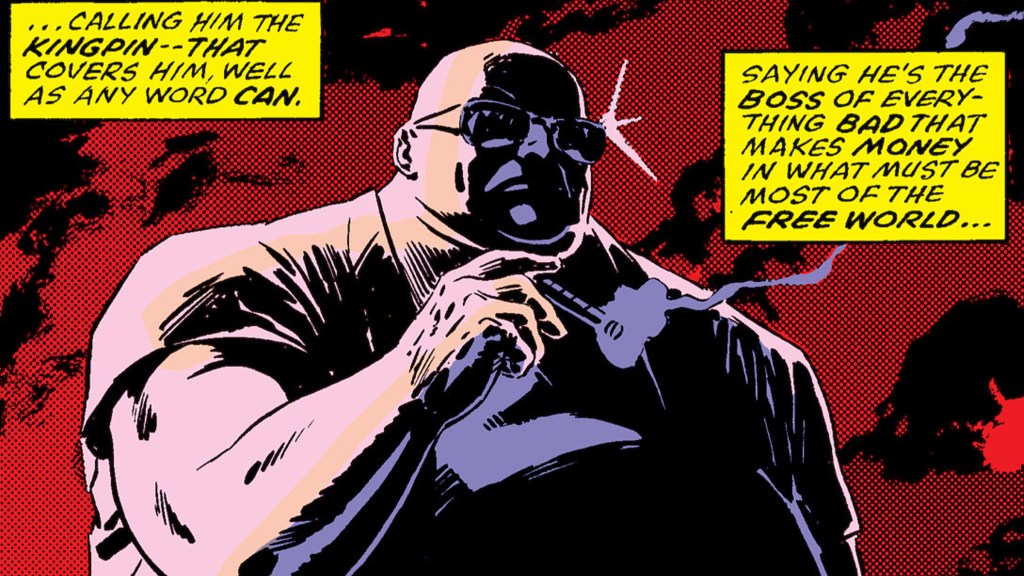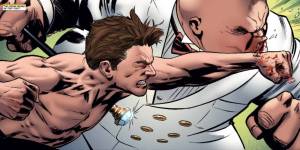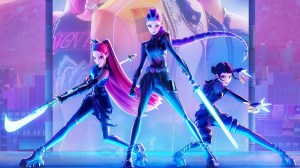There’s a reason the Marvel Comics universe is described as a superhero-centric universe – superheroes dominate the landscape. It’s a superhero-driven reality. Even when a title, series, or event stars a villain, outcast, or other character of questionable repute, a superhero almost always plays a crucial and often defining role. To be sure, the presence of the hero is what gives the villain’s journey its meaning and purpose. So, because Marvel’s reality is so hero-focused, it’s often easy to assume that all the best and most compelling stories are about heroes, or are hero-adjacent narratives. However, this view is not an entirely accurate understanding of the Marvel Comics universe. I
Videos by ComicBook.com
But there’s one story the presents a compelling case of human frailty, systemic failure, and the often blurred line between. Indeed, just as heroes underlie a villain’s story, villains often provide the conflict, the theme, and the philosophical challenge. Without a great villain, a hero’s story can feel “meh.” No character emodies this principle more completely than Wilson Fisk’s Kingpin. A villain whose interactions with Spider-Man, Daredevil, and other heroes are as much about him as they are about the heroes.
The Kingpin: From Zero to Hero Without Superpowers

The part of Kingpin’s story that best illustrates its greatness is that, in a world filled with superpowered beings, he remains a formidable force despite having no powers of his own. While the absence of superhuman abilities would make most criminals think twice about challenging superheroes, the Kingpin has no hesitation in opposing anyone who threatens his plans. His willingness to confront heroes is not born of recklessness, but of the confidence, perseverance, and discipline he forged through the many hardships of his youth. As the saying goes, whatever didn’t kill the Kingpin made him stronger, more focused, and far more dangerous
The Kingpin, a villain created by Stan Lee and John Romita, first appeared in The Amazing Spider-Man #50 with a distinctly different approach from Spider-Man’s previous foes. Instead of directly assaulting the community like the Green Goblin or the Lizard, the Kingpin preferred to work behind the scenes, a style of activity that became his trademark. Indeed, his “shadowcraft” was how he masterfully orchestrated the consolidation of New York City’s criminal underworld under his complete control.
While his clandestine methods had the practical benefit of helping him maintain a law-abiding public image, even while he was deeply entrenched in criminal activity, they also hinted at a more profound backstory. His behind-the-scenes manipulation was a window into his deep-seated desire for absolute control over his own life and the lives of those he considered important. This need for control, a central theme in his character’s history, makes him a compelling and multifaceted antagonist.
Fisk’s Kingpin is the Playground Bully’s Worst Nightmare

Although the Kingpin is now a supremely confident person, this was not always the case. As a child, his large size and social awkwardness made him a target for constant ridicule and bullying at school. His home life offered little refuge; his father, a small-time crook, often mocked him in the same manner as the schoolyard bullies. While his mother was loving, she was also weak-willed and unable to protect him from his father or his tormentors at school.
Feeling utterly powerless, Fisk refused to choose the path of least resistance — avoidance. Instead, he dedicated himself to self-improvement, voraciously consuming books, taking classes, and seeking out any other means to gain knowledge and power. He was determined that no one would ever bully him again — not the bully in the schoolyard, not his abusive father at home, and not the righteous superhero preaching about truth and justice.
His youthful experiences not only drove his desire to be physically powerful and intimidating but also his desire for control—the key element underlying his position as the Kingpin. This led to his realization that true power isn’t about beating down an opponent – an act that not only fuels their thirst for revenge but also exposes him to new threats from others – but rather about getting others to do his bidding without having to lift a finger until or unless top-level decisions demand it.
Indeed, beating up a bully in the schoolyard will often get the bullied in trouble as well. But getting someone else to do it — not only puts the bully in their place but also saves the bullied from the school’s attention. That is, Fisk’s childhood experiences made him not only the ultimate bully but also one who was willing to “export” his bullying goals to others. He doesn’t just want power — he wants the kind of invisible, total control that makes him untouchable, safe from the humiliations he suffered from in childhood.
The Humanity of the Kingpin’s Evil

Indeed, Fisk didn’t become a villain to rule the world but rather to create an environment where he could set the rules, control the players, and never be bullied again. In other words, his villainy stems not from an evil heart but from a vulnerability of spirit. While readers may condemn his actions, they often understand his motives. What better example of this is there than his relationship with his lover and wife, Vanessa? On one hand, his love for her shows how he is like many of us – unable to control our strongest emotions. On the other hand, the lengths he goes to keep her under control reflect classic Kingpin tactics such as emotional manipulation, threats, and power plays.
Fisk’s origin story unfolds like an inverted superhero narrative, yet paradoxically becomes more compelling for readers. Unlike traditional superheroes, he was not born with extraordinary abilities nor did he acquire them through a miraculous event. Instead, Fisk meticulously forged his power through relentless determination, intellectual prowess, and rigorous physical conditioning. He represents the quintessential self-made antagonist — an ordinary man who transcended his circumstances through sheer willpower and strategic ambition. Fisk embodies the ultimate “bootstrap” supervillain, transforming personal hardship into a pathway of remarkable, self-constructed influence. That vibe resonates more with fandom – or should – than a doctor who finds a cane and becomes a god or a person, as luck would have it, who is born with godlike powers.
Want to stay up to date on the biggest geek entertainment news? Add us as a prefer source in Google – HERE.










